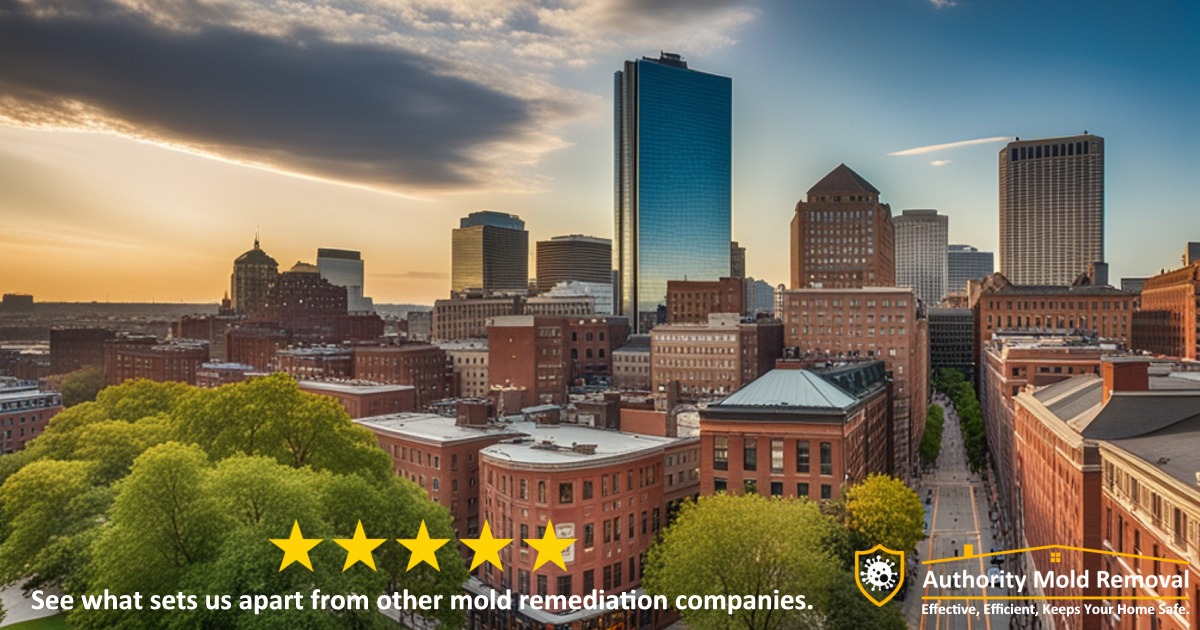Mold Remediation Mass
Understanding Mold
Mold is a type of fungus that thrives in damp and humid environments. It can grow on various surfaces, including walls, ceilings, floors, and even furniture. The main causes of mold growth are excessive moisture, water leaks, poor ventilation, and high humidity levels. Some common signs of mold infestation include musty odors, visual mold growth, water stains, and discoloration on surfaces.The Importance of Mold Remediation
Mold remediation is the process of removing and preventing the growth of mold in an affected area. The presence of mold can lead to serious health issues, especially for individuals with respiratory problems, allergies, or weakened immune systems. Prolonged exposure to mold spores can cause allergic reactions, asthma attacks, and other respiratory problems. Mold can also cause structural damage to buildings if left unaddressed.Steps for Mold Remediation
 If you discover mold in your Massachusetts property, it is crucial to take immediate action to address the issue. Here are the steps you can follow for effective mold remediation:
•Identify the Source of Moisture: The first step in mold remediation is to identify and fix the source of moisture that is causing mold growth. This may involve repairing water leaks, improving ventilation, or reducing humidity levels in the affected area.
• Containment: To prevent the spread of mold spores to unaffected areas of the property, it is important to set up containment measures. This includes sealing off the affected area and using negative air pressure to prevent mold spores from spreading during the remediation process.
•Removal: The next step is to physically remove the mold from the affected surfaces. This may involve scrubbing, sanding, or using specialized mold removal products. It is important to follow appropriate safety measures, such as wearing protective clothing and using proper ventilation, while removing mold.
•Cleaning and Disinfection: Once the mold is removed, it is essential to clean and disinfect the affected area to eliminate any remaining mold spores. This can be done using commercial mold cleaners or a mixture of water and detergent. It is important to thoroughly dry the area after cleaning to prevent mold regrowth.
•Prevention: To prevent future mold growth, it is important to address the underlying causes of moisture. This may involve fixing plumbing issues, improving ventilation, using dehumidifiers, or conducting regular inspections for potential water leaks.
If you discover mold in your Massachusetts property, it is crucial to take immediate action to address the issue. Here are the steps you can follow for effective mold remediation:
•Identify the Source of Moisture: The first step in mold remediation is to identify and fix the source of moisture that is causing mold growth. This may involve repairing water leaks, improving ventilation, or reducing humidity levels in the affected area.
• Containment: To prevent the spread of mold spores to unaffected areas of the property, it is important to set up containment measures. This includes sealing off the affected area and using negative air pressure to prevent mold spores from spreading during the remediation process.
•Removal: The next step is to physically remove the mold from the affected surfaces. This may involve scrubbing, sanding, or using specialized mold removal products. It is important to follow appropriate safety measures, such as wearing protective clothing and using proper ventilation, while removing mold.
•Cleaning and Disinfection: Once the mold is removed, it is essential to clean and disinfect the affected area to eliminate any remaining mold spores. This can be done using commercial mold cleaners or a mixture of water and detergent. It is important to thoroughly dry the area after cleaning to prevent mold regrowth.
•Prevention: To prevent future mold growth, it is important to address the underlying causes of moisture. This may involve fixing plumbing issues, improving ventilation, using dehumidifiers, or conducting regular inspections for potential water leaks.
Hiring Professional Mold Remediation Services
While some minor mold issues can be addressed by homeowners, larger or recurring mold problems may require professional mold remediation services. Mold remediation professionals in Massachusetts have the expertise and equipment to effectively remove mold and prevent its regrowth. When hiring a professional, ensure that they are licensed, certified, and experienced in mold remediation. In conclusion, mold remediation is crucial to maintaining a safe and healthy living environment in Massachusetts. Identifying and addressing mold issues promptly can prevent further damage to the property and minimize health risks for residents. Whether you choose to tackle the problem yourself or hire a professional, it is important to follow proper mold remediation procedures to ensure a successful outcome.
CALL NOW
24-Hour Service
#AuthorityMoldRemoval
#MoldAuthority
 Effective, Efficient, Keeps Your Home Safe. Welcome to Authority Mold Removal. We are nationwide mold remediation experts. Call us today with your questions so you can make your home safe again.
Effective, Efficient, Keeps Your Home Safe. Welcome to Authority Mold Removal. We are nationwide mold remediation experts. Call us today with your questions so you can make your home safe again.Useful Links
Contact Info
24-Hour Service 646-389-9595admin@authoritymoldremoval.com
277 Park Ave, New York, USA